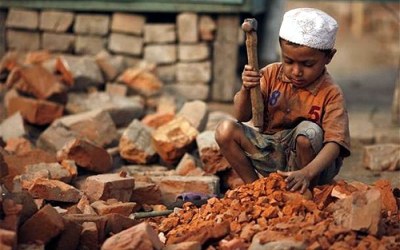Nabila* is an 18-year-old villager girl who lives in a mud house without any facilities. She has 6 sisters, but her parents have always considered them a burden.
In Pakistan, a woman’s parents are expected to pay her groom’s family a significant dowry. Three of her sisters are already married, and her parents arranged their dowry with great difficulty.
However, her sisters are not happy in their husbands’ houses as the husbands’ families continue to demand more dowry. Nabila told us that her parents are already in great debt.
While Nabila wants to become a teacher, her parents do not have enough resources for her to pursue her dream. Seeing her parents’ debt and her married sister’s condition, Nabila decided to learn sewing skills as a way to earn income.
She hopes that one day she will earn money not only for herself but for her family, too. She is very grateful to RAM for her enrollment.
Unfortunately, the dowry system in Pakistan leads to daughters being viewed as financial burdens. Parents often sell girls into domestic servitude, prostitution, and forced marriages.
Going into debt to pay a dowry is also a driving force behind families taking out loans from brick kiln factory owners.
However, at our vocational training program, women and girls are offered a safe place to learn an in-demand and marketable skill, basic good business practices, and become educated on their rights as women under the law.
Would you like to support our sewing classes? Just $25 sponsors one month of tuition for a student! You can also sponsor a sewing machine for $90.
Learn more by visiting our gift program here.
*Name changed for security purposes.
Arif Masih & Family’s rescue
Arif Masih is a poor Christian man born in a brick kiln where his father and grandfathers were working as a slave. Nasreen, his wife, has the same background. They got married in a brick kiln with the previous debts of their respective families. God blessed them with...
Second-Class Citizen Day | Religious Minorities in Pakistan
Earlier this month, Pakistan celebrated its eighth National Minorities Day. The day’s significance originates from a speech in which Pakistan’s founder, Mohammad Ali Jimnah, envisioned a Pakistan that would be respectful of all religious backgrounds. “You may belong...
No Honor in Murder: Calling It What It Is
The recent strangling of Qandeel Baloch, a Pakistani social media star, by her brother has revealed the widespread issue of honor killings throughout Pakistan. Despite Baloch’s controversial publicity, her fame helped to illuminate the growing problem of abuse against...





